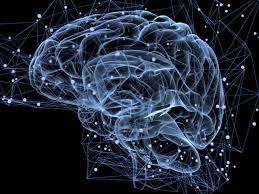A nurse is caring for a client who has a new diagnosis of schizophrenia and a prescription for an antipsychotic medication. The nurse should recognize that which of the following indicates an adverse effect that must be reported to the provider?
The client is observed displaying a shuffling gait while walking in the hall.
The client is observed mumbling quietly while alone in the day room.
The client states, "I feel light-headed when I stand up quickly."
The client states. "Being in the sun seems to really hurt my eyes
The Correct Answer is A
Choice A reason
The client is observed displaying a shuffling gait while walking in the hall is the correct answer. The nurse should recognize that observing a shuffling gait in a client who is taking antipsychotic medication is an adverse effect that must be reported to the healthcare provider. A shuffling gait is a movement disorder known as parkinsonism, which can be a side effect of some antipsychotic medications, particularly first-generation or typical antipsychotics.
Parkinsonism includes symptoms similar to Parkinson's disease, such as a shuffling walk, muscle stiffness, tremors, and difficulty with balance and coordination. It can occur as a result of blocking dopamine receptors in the brain, leading to an imbalance in dopamine levels.
Choice B reason:
The client mumbling quietly while alone is not correct because in the day room may be related to the symptoms of schizophrenia, and it does not indicate an adverse effect of the antipsychotic medication.
Choice C reason:
The client feeling light-headed when standing up quickly is not correct and it may be related to postural hypotension, which can be a side effect of some antipsychotic medications. While it should be monitored and reported if persistent or severe, it is not as urgent as reporting a shuffling gait.
Choice D reason:
The client stating that being in the sun hurts their eyes does not necessarily indicate an adverse effect of the antipsychotic medication. It may be related to other factors or unrelated to the medication.

Nursing Test Bank
Naxlex Comprehensive Predictor Exams
Related Questions
Correct Answer is C
Explanation

Enoxaparin is a blood thinner that helps prevent the formation of blood clots in people who have certain medical conditions or who are undergoing certain procedures. Enoxaparin can increase the risk of bleeding, especially if taken with other medications that affect blood clotting, such as nonsteroidal anti-inflammatory drugs (NSAIDs) or aspirin.
Therefore, the nurse should instruct the client to avoid taking pain relievers such as naproxen sodium (choice A), ibuprofen (choice B), or aspirin (choice D) while on enoxaparin. These pain relievers can make the client more likely to bleed when on enoxaparin. Acetaminophen (choice C) is a pain reliever that does not affect blood clotting and can be taken safely with enoxaparin. However, the client should follow the directions on the box to make sure they do not take more than the recommended amount of acetaminophen, as it can cause liver damage in high doses.
Correct Answer is A
Explanation
The correct answer is choice A. Deep tendon reflexes 2+. This indicates that the client is receiving the therapeutic effect of magnesium sulfate, which is to prevent seizures by reducing neuromuscular excitability.
Magnesium sulfate is a mineral that is given intravenously to women with preeclampsia, a condition of high blood pressure and protein in the urine during pregnancy, to reduce the risk of seizures or eclampsia. It can also prolong pregnancy for up to two days, allowing drugs that speed up the baby’s lung development to be administered.
Choice B is wrong because 1+ proteinuria via urine dipstick is not a therapeutic effect of magnesium sulfate, but a sign of preeclampsia.
Proteinuria indicates that the kidneys are not working properly and are leaking protein into the urine. Magnesium sulfate does not improve the outcomes for the baby and can cause side effects such as respiratory depression for the mother.
Choice C is wrong because pulse rate 100/min is not a therapeutic effect of magnesium sulfate, but a possible side effect.
Magnesium sulfate can cause vasodilation, which lowers blood pressure and increases heart rate. A normal pulse rate for an adult is between 60 and 100 beats per minute. A pulse rate higher than 100 beats per minute may indicate tachycardia, which can be caused by various factors such as anxiety, dehydration, fever, infection, or medication.
Choice D is wrong because urine output 20 mL/hr is not a therapeutic effect of magnesium sulfate, but a sign of kidney failure. A normal urine output for an adult is between 800 and 2000 mL per day, or about 30 to 80 mL per hour. A urine output lower than 30 mL per hour may indicate oliguria, which can be caused by various factors such as dehydration, blood loss, shock, or kidney damage. Magnesium sulfate can cause renal toxicity if given in high doses or for prolonged periods.
Whether you are a student looking to ace your exams or a practicing nurse seeking to enhance your expertise , our nursing education contents will empower you with the confidence and competence to make a difference in the lives of patients and become a respected leader in the healthcare field.
Visit Naxlex, invest in your future and unlock endless possibilities with our unparalleled nursing education contents today
Report Wrong Answer on the Current Question
Do you disagree with the answer? If yes, what is your expected answer? Explain.
Kindly be descriptive with the issue you are facing.
